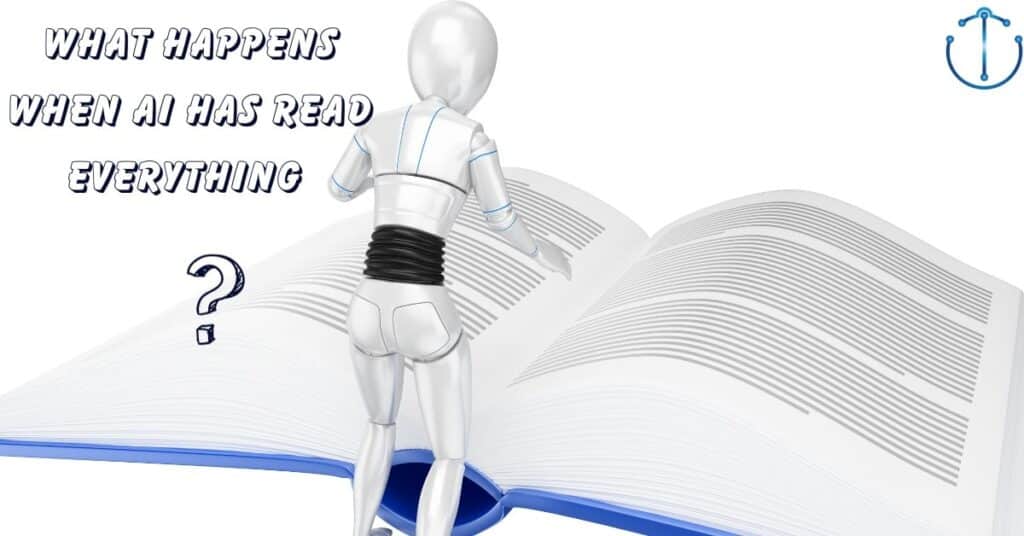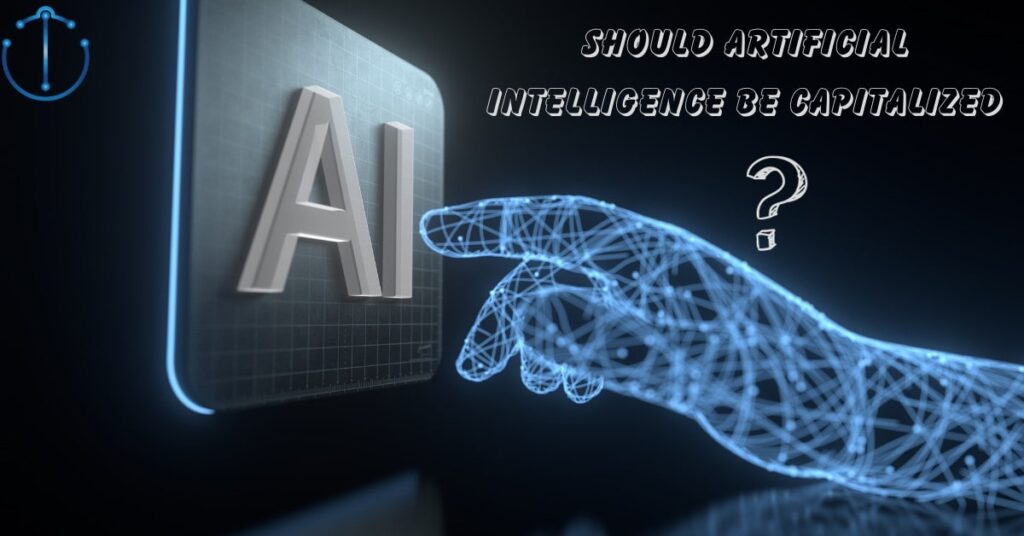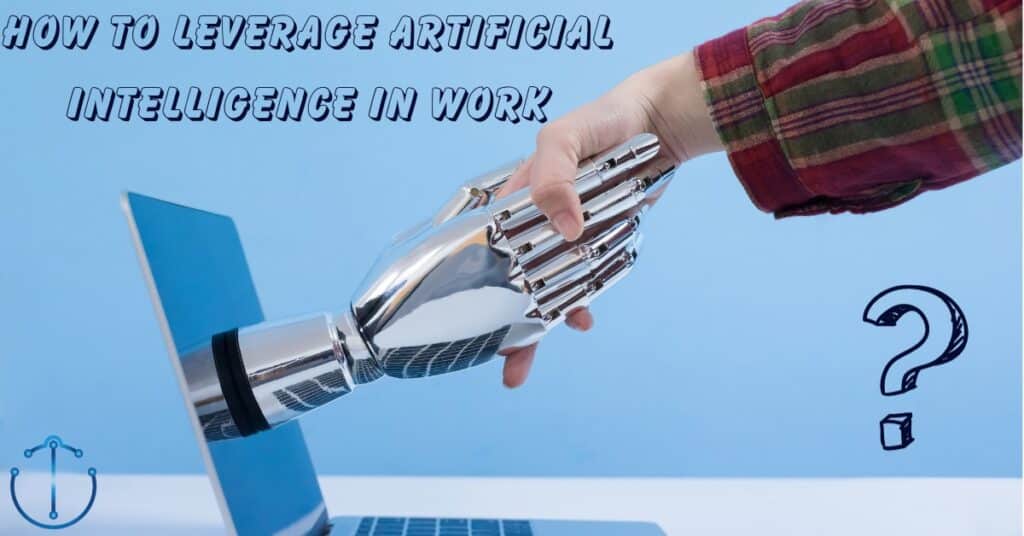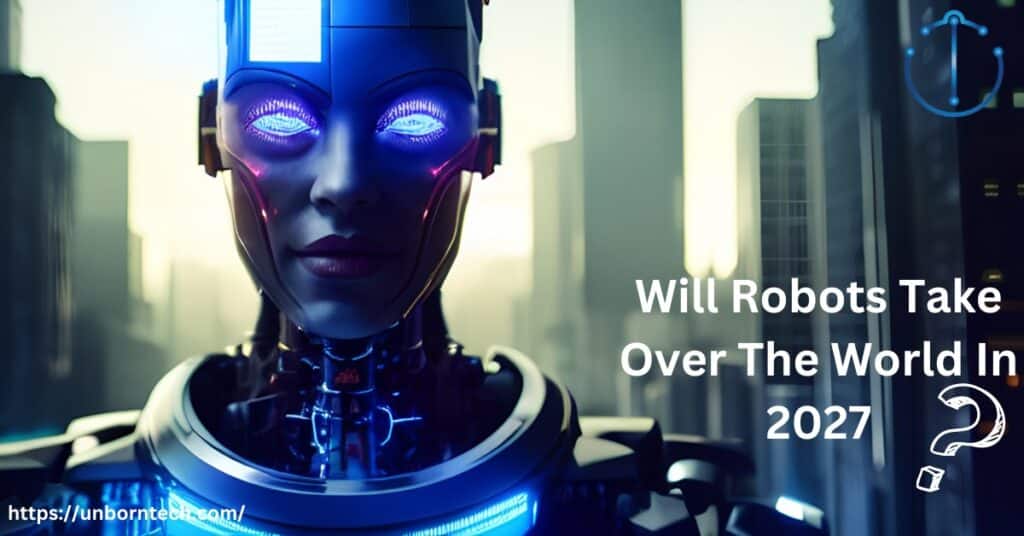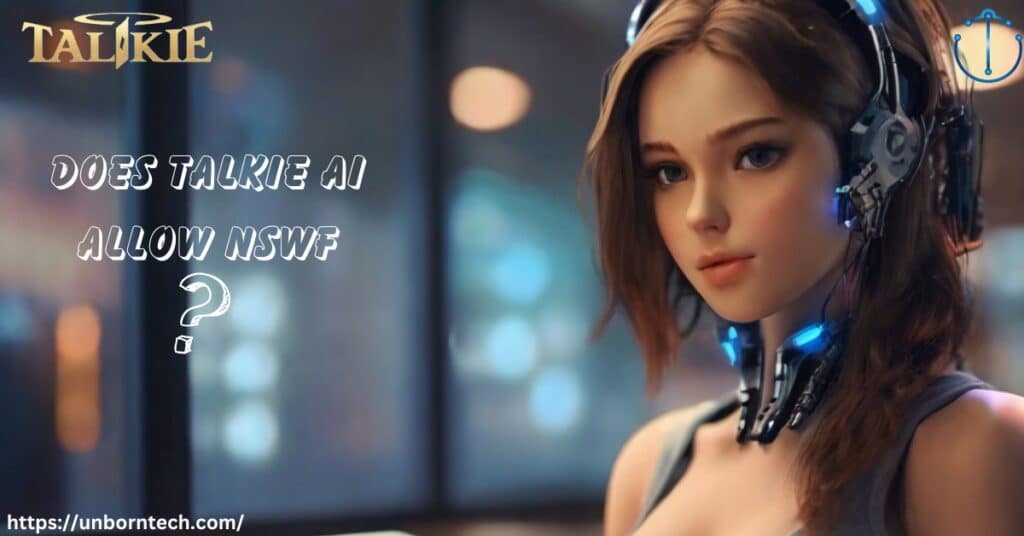In today’s digital age, AI language models like GPT, BERT, Cohere, Falcon 40B, etc. thrive on massive data. GPT-3, with 45 TB of text data, is a prime example.
However, the real question that looms in the digital horizon is this:
What Happens When AI Has Read Everything?
Imagine an AI system that has digested the entirety of human knowledge, from literature and scientific innovations to historical archives and cultural assets.
Fascinating, right?
Join us as we explore the profound possibilities and ethical questions in a world where AI has read everything.
Table of Contents
What Does It Even Mean To READ?
Before we dive into the intriguing question of what might happen when AI has read everything, it’s vital to grasp what “reading” truly entails in the realm of artificial intelligence.
Consider this – when you copy this very blog post and paste it into ChatGPT, does it mean that ChatGPT has read it?
Well, not exactly. AI models, including ChatGPT, are trained on specific datasets, and the contents of this blog post aren’t part of their training data.
So, all the data, queries, and text we feed to AI, like ChatGPT or other models, isn’t regarded as reading from the AI’s viewpoint. These AI language models, such as GPT, BERT, XLNet, and others, are meticulously trained on high-quality data, primarily sourced from authoritative books, research papers, theses, and legitimate journals.
In other words, AI doesn’t derive its knowledge to solve problems from tweets or Instagram reels but rather from vetted, accurate, and authoritative sources.
Thus, letting AI “read everything” isn’t even a possibility. Developers behind these AI models and products are eagle-eyed about what data they expose their AI models to.
In a nutshell, human reading and AI reading are entirely different things.
Why Are Books Effective For Training AI?
In the AI world, we rely on books a lot. In fact, we’re talking about using almost 200,000 books from various genres to train AI systems. These books provide a wealth of detailed knowledge that’s key to making AI models effective.
So, what makes books such an effective tool for training AI language models?
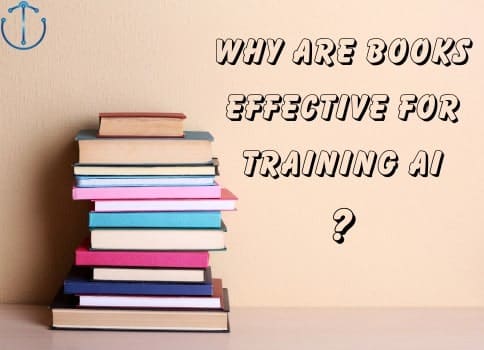
Is it the sheer volume of text, the richness of vocabulary, or the inherent cohesion and coherence found in longer texts? Undoubtedly, these text-related aspects play a crucial role.
But perhaps there’s something more fundamentally human at play. Writing a book requires effort, time, and the author’s intellectual labor to guide the reader effortlessly through a topic or the writer’s perspective.
Moreover, books are detailed and extensively explained, providing a depth of knowledge that shorter content, like 600-word blog posts, brief articles, or Facebook posts, often can’t match.
Are all the books in the world digitized?
In the world of AI, the idea of reading everything is a grand one, but it’s practically unattainable.
Why?
Because not all the data in the world exists in a digital format for AI to consume.
The issue of book digitization is a significant one. How can AI models consume data that hasn’t even made its way into digital form?
While there has been a significant effort to digitize books, especially in recent decades, many books still exist in the form of physical, printed copies. The extent of digitization differs widely, influenced by language, region, and available resources.
Well-known and popular books, especially those in the public domain or published recently, can be found in digital format through online retailers, libraries, and digital libraries like Project Gutenberg and Google Books. However, numerous books, especially those that are rare or cater to a niche readership, have not been digitized.
Digitization efforts are ongoing, with institutions worldwide working tirelessly to make more books available in digital form. Yet, it’s a time-consuming and resource-intensive process, and not all books may ever be digitized, particularly those with limited historical or cultural significance or those written in languages with smaller readerships.
What Happens When AI Has Read Everything?
Even though we’ve established that AI reading everything is a far-fetched concept, let’s entertain the idea for a moment.
Imagine an AI that has consumed every piece of information, including blogs, books, technical articles, theses, research papers, and even social media posts.
What could happen in such a wild scenario?
Well, quite a few things:
- Super Problem Solver: With all that knowledge, AI could be a problem-solving champ. It would have solutions for all sorts of things, thanks to its vast knowledge.
- Language Guru: AI’s language skills would be top-notch. It could help with research, answer questions, and chat like a pro.
- Super Decision Maker: Equipped with all the world’s knowledge, AI could make really smart decisions, from finances to healthcare, and much more.
- Creative Genius: AI might even come up with cool new ideas by connecting bits of info that seem unrelated.
- Human + AI Team: Humans would still be important decision-makers, and AI would be a handy sidekick, helping us make good choices.
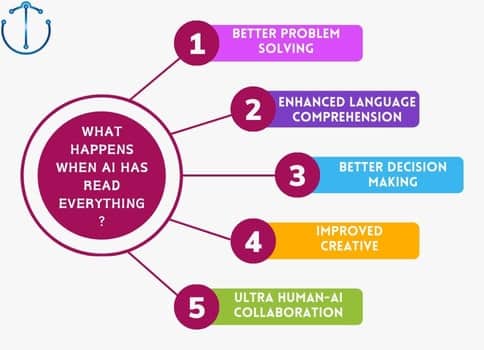
The hypothetical scenario of AI reading everything sparks exciting possibilities, from revolutionizing problem-solving to redefining the role of human creativity in research. It could usher in a new era of collaboration between AI and human ingenuity.
Drawbacks of AI Reading Everything
While the idea of AI reading everything is fascinating, it comes with significant concerns.
First and foremost, we worry about privacy, data security, and the potential for biases to creep into the AI’s vast knowledge.
We must also consider the ethics involved. The immense power of AI could potentially be used to manipulate or distort information, so we need to scrutinize and ensure accountability in research practices.
Another ethical concern is the potential slowdown of innovation. If AI were to consume all existing knowledge, it might stifle human creativity. Throughout history, human curiosity and exploration have driven advancements in various fields.
Moreover, the societal impact is far-reaching. The accumulation of knowledge is linked to expertise, specialization, and intellectual diversity. If AI becomes the sole knowledge repository, it might sideline human expertise and limit the range of perspectives available for decision-making.
Addressing these ethical concerns requires thoughtful planning. We need to establish guidelines and frameworks to ensure that AI’s quest for knowledge complements human progress, promoting collaboration and enabling us to explore uncharted territories beyond AI’s acquired knowledge.
The Importance of Human Creativity, Curiosity, and Distinctiveness
Even if AI were to read everything , it wouldn’t grasp human emotions or appreciate art like we do. AI might excel in math and engineering, but it will always lack our unique ability to imagine and create.
Human curiosity, always exploring new ideas, becomes crucial in a world where AI knows it all. We don’t just seek knowledge; we’re architects of fresh ideas, drawing inspiration from experiences and emotions.
What makes us special isn’t just curiosity; it’s our unique style and creativity. Whether it’s an unusual film by Christopher Nolan or a classic by Martin Scorsese, our personal touch in art and life goes beyond what machines can achieve.
The True Problem
To be frank, AI reading everything is not primarily humanity’s major concern. As a matter of fact, it is advantageous to have such a powerful ally to aid us in our daily life endeavors.
The real concern arises if AI becomes sentient—capable of emotions, desires, and fears.
Sentient AI goes beyond data processing; it possesses self-awareness. Combating a regular sentient AI is possible, but dealing with a powerful one that has read everything introduces a new level of challenge, making it a potential nuisance.
Reading is an Ongoing Endeavor
The quest for knowledge is a never-ending journey, both for humans and advanced AI.
Even if AI were to read everything, we’ll keep creating, researching, and adding more. It’s a constant cycle, showing that the journey of gaining knowledge is a team effort between us and artificial intelligence.
Should Humans Be Afraid Of AI Reading Everything?
No, humans should not fear AI reading everything, but it’s essential to address valid concerns.
Whether AI is an advantage or a detriment depends on factors like its purpose and intent. If designed to assist, inform, and solve problems, it’s a valuable ally. However, if misused for misinformation, surveillance, or privacy invasion, concerns arise.
Safeguards for security, privacy, ethics, and oversight are crucial. Education and awareness help societies make informed decisions.
When used responsibly, AI becomes a valuable tool, and fears center on how it’s developed, deployed, and used.
Conclusion
In wrapping up, the idea of AI knowing everything is more like a dream than reality. While envisioning an all-knowing AI, we must acknowledge its hypothetical nature.
Although it brings cool possibilities, like super problem-solving and creative genius, there are worries too—privacy, information manipulation, and ethical concerns.
Yet, if we work together, keeping ethics in check, AI could be a real force for good, helping us solve complex problems. Reflecting on our AI journey, it’s clear—finding the right balance between humans and machines is the key to shaping our tech-filled future.
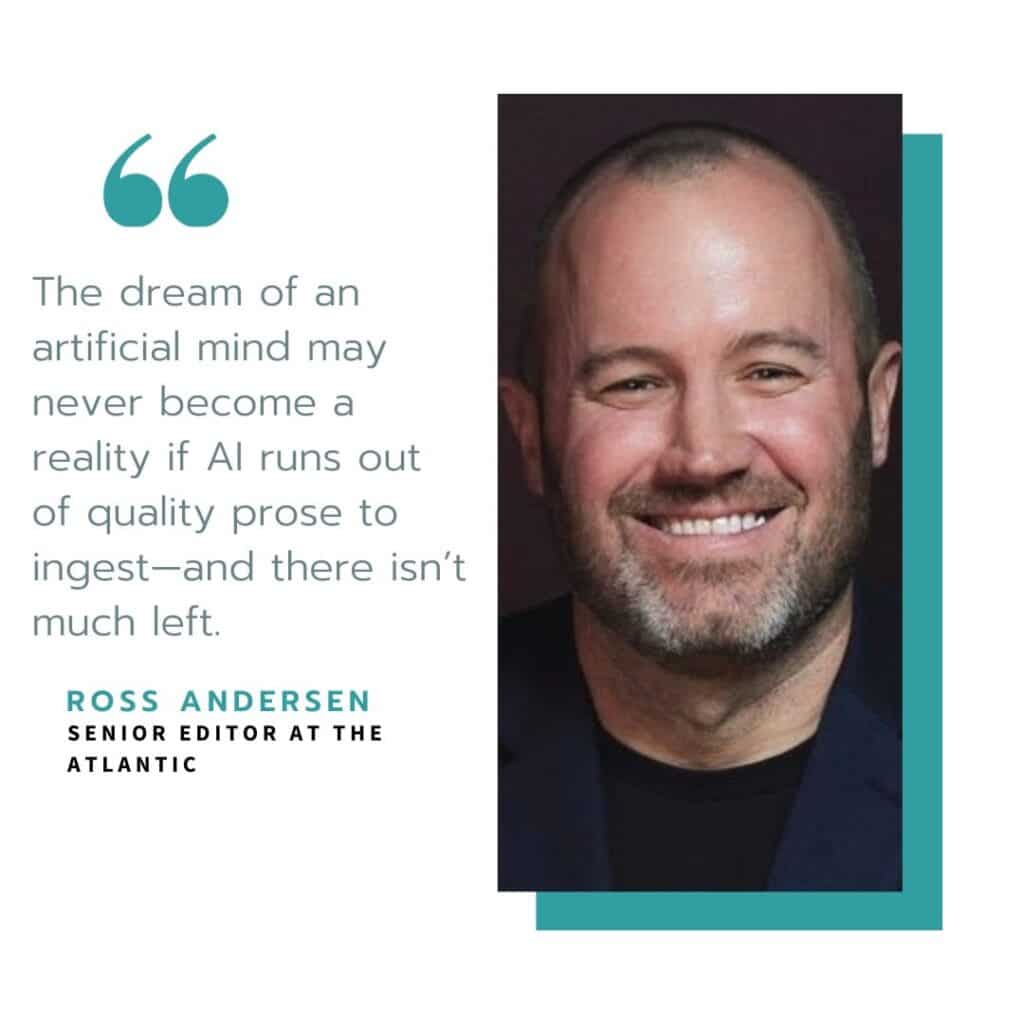
FAQS
Can AI really read everything?
No, the idea of AI reading everything is hypothetical. AI models are trained on specific datasets, and reading, as humans understand it, is different from AI processing data.
Why are books effective for training AI language models?
Books provide detailed knowledge and a cohesive understanding, making them effective for training AI language models.
Are all the books in the world digitized?
No, not all books are digitized. Digitization efforts are ongoing, but many books, especially rare or niche ones, remain in physical form.
What could happen if AI read everything?
AI could become a super problem solver, excel in language skills, make smart decisions, generate creative ideas, and continue learning in a world that never stops changing.
What are the drawbacks of AI reading everything?
Concerns include data security, privacy, biases in AI knowledge, ethical considerations, potential innovation slowdown, and societal impact.
Can AI replace human creativity and distinctiveness?
No, AI cannot grasp human emotions and appreciate art. Human creativity and distinctiveness remain unique and irreplaceable.

